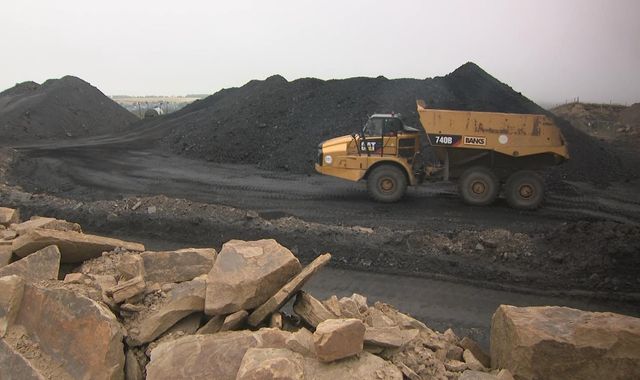England’s last coal mine closes despite demand for almost 8m tonnes of coal a year
Written by News on 17/08/2020
Today marks the end of an era, with the closure of England’s last commercial coal mine.

The Bradley Mine in County Durham has operated for almost 200 years.
But now, after plans to expand the site failed, the open-cast pit that produces 150,000 tonnes of coal a year, will close.
It is the worst possible news for the miners who work here, especially when they know that the UK still has a demand for almost eight million tonnes of coal a year.
A demand that is satisfied by imports that come mainly from Russia and the United States.
Alan Mayman has been a miner for over 25 years. Now in his mid-fifties, he faces an uncertain future.
“I’m devastated, absolutely devastated that it’s coming to a close,” he says.
“The county council and the government have done nothing to support us, so this’ll be the last coal mine that I’ll probably ever work on. Then that’s it.”
“So what now,” I ask.
“Haven’t got a clue,” he replies.
Graeme Stott is relatively new to mining. After careers in military intelligence and mental health provision, he started an apprenticeship at Bradley two years ago.
“My partner’s family are in it, they’ve been in it for 30 years,” he says.
“My father worked for British Steel, and that industry’s gone. It’s awful.
“To think that there’s British lads there that can do the job. We’ve got all the machinery, we’ve got all the training. We’re probably more qualified than the rest of the world, but we’ve had it taken away from us.”
There are still a handful of small mines operating in Scotland and Wales. But their days too are numbered. The Ffos-y-Fran Land Reclamation Scheme in Merthyr Tydfil will be the last of those to close, in October 2022.
:: A New Climate is a series of special podcasts from the Sky News Daily. Listen on Apple Podcasts, Google Podcasts, Spotify, Spreaker
The coal industry in England has been in decline for years. The Miner’s Strikes, with mass walk-outs and pitched battles over pit closures in the 1980s couldn’t save it, and it’s faced a slow painful death ever since.
The last deep mine, at Kellingley in North Yorkshire, closed five years ago. Since then the only home produced coal has come from open cast mines like Bradley.
There is still coal here in Consett, but owners Banks Group says it’s only commercially viable if they can extend their operation.
Environmental campaigners fought against those plans. And won.
Jessica Maddison, a climate activist in the North East took part in demonstrations at the site and says: “The truth is, we can’t carry on serving the purpose of profit at the price of our lives.
“We have to make this transition (to renewables) and we have to do what can because our lives on this planet are at stake. Economic advances mean for nothing on a dead planet.”
Banks Group, which operates the mine at Bradley, is currently waiting for Secretary of State for Housing, Communities and Local Government Robert Jenrick, to decide whether its plans for a new mine at Highthorn in Northumberland can go ahead.
If it gets approval, English mining may start again, with the pit producing 3 million tonnes of coal, and creating 50 jobs.
But it’s a big if.
The proposal was rejected by Mr Jenrick’s predecessor Rishi Sunak two years ago, before Banks Group won an appeal to have it reconsidered.
The company accepts there needs to be a transition to renewable energy – it also runs 10 onshore windfarms. But it still insists there is still a short-term future for home-produced coal.
Lewis Stokes from Banks Group says: “We support the move to a cleaner climate. We’re not climate change deniers, we understand that. But at the minute, and for the short to medium term, we need coal.
“That’s why we need to keep mining coal here in County Durham and in Northumberland at our forward programme sites, because it makes economic and environmental sense to do just that.”
Britain has made a commitment to have coal-free electricity production by 2025. And with demand for coal consistently falling, it seems likely that the lorries leaving Bradley today, will be carrying the last coal that England ever produces.
(c) Sky News 2020: England’s last coal mine closes despite demand for almost 8m tonnes of coal a year







